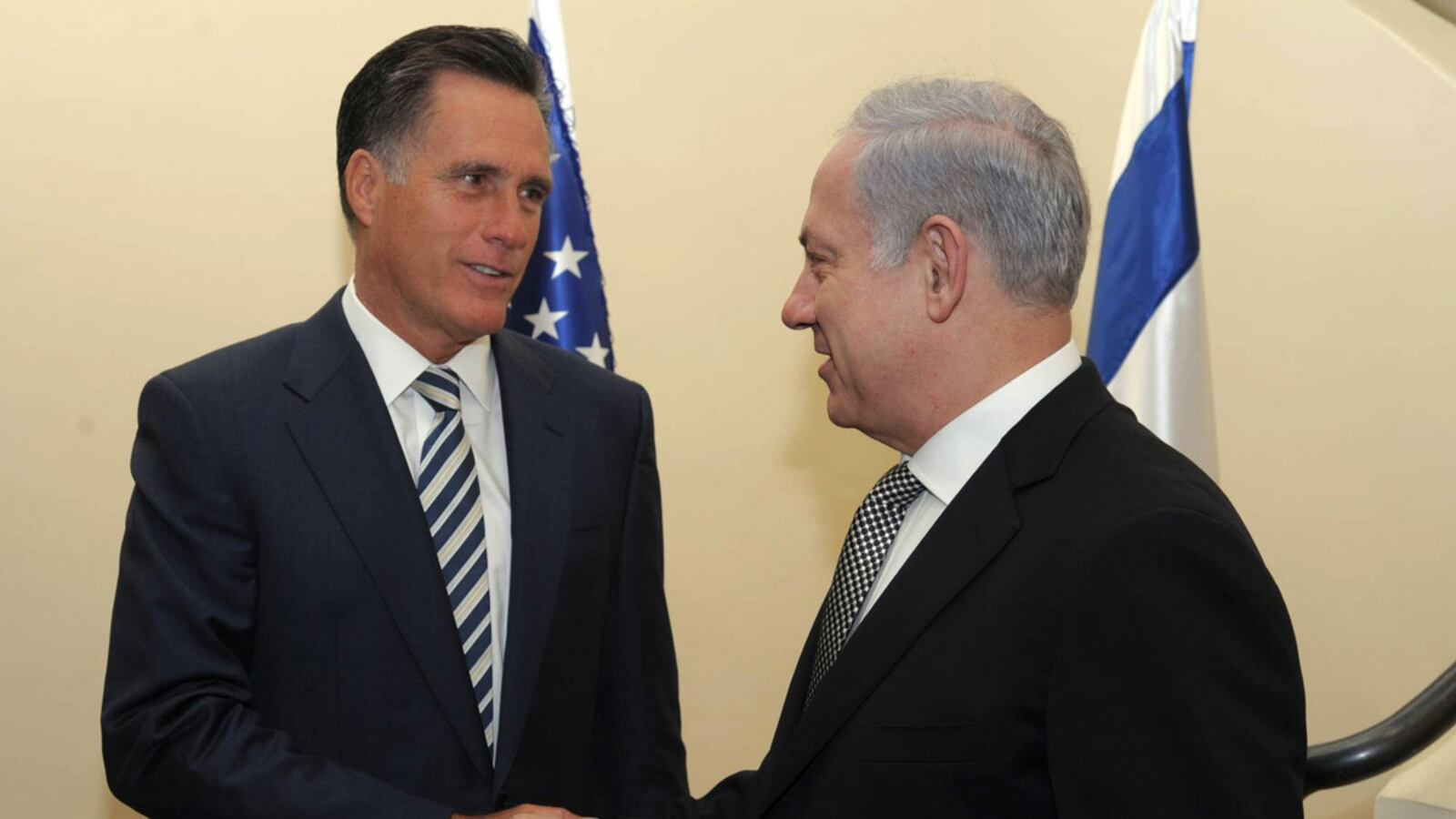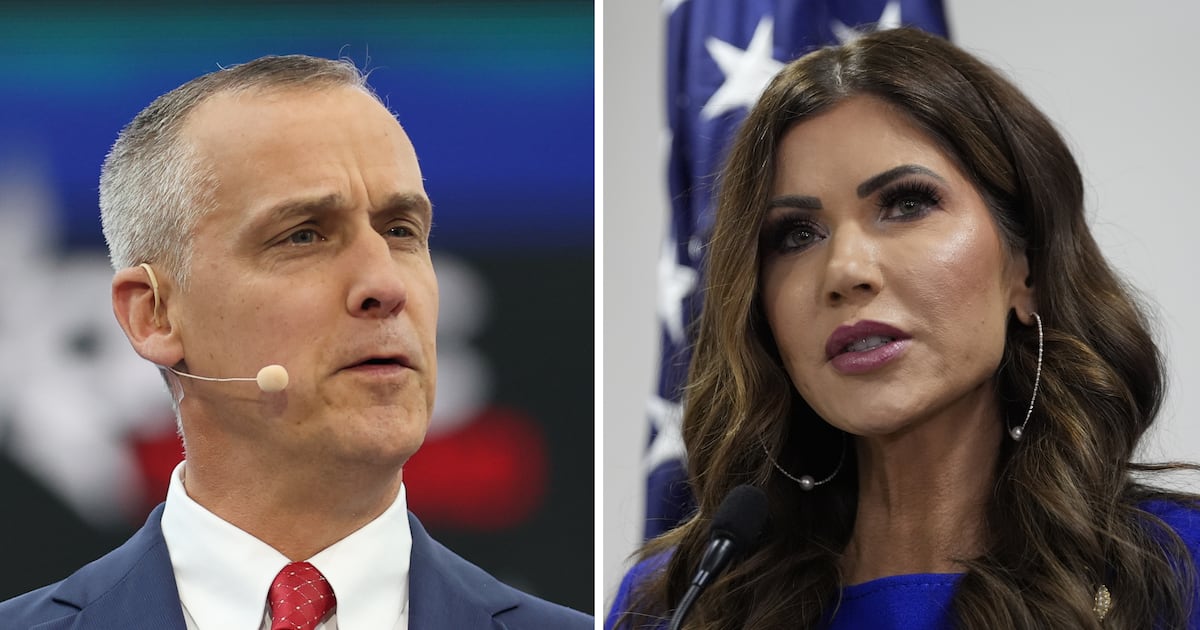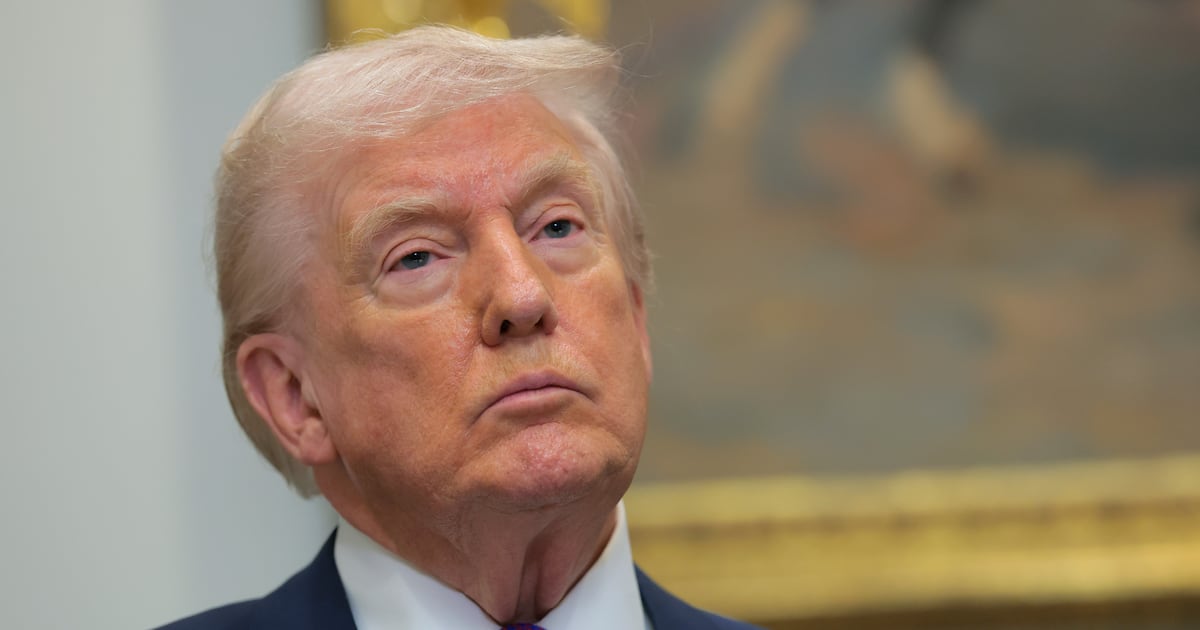Barack Obama and Benjamin Netanyahu are both slyly involved in the other’s politics, and the US is not the only country headed to an election. Netanyahu’s Likud, and all the parties of Greater Israel, are now (as Andrew Sullivan put it) “fused” with the GOP.
The question is, can Obama contribute to defeating Netanyahu’s government without confronting Bibi over settlements once again, which would risk inflaming Israel’s automatic supporters among the Democrats? Can he undermine the Netanyahu coalition, a precondition for advancing negotiations, without undermining the chances for his own reelection?

The first thing to say is that Netanyahu is, in spite of his lead in the polls, vulnerable. The parties of Global Israel—Labor, Kadima, Yair Lapid’s new center list, Meretz, etc.—lack an obvious leader just now (except for the perennial figurehead, Shimon Peres). But they are held together by a mounting and widely shared fear that the two-state solution is slipping away; fear of new and catastrophic political isolation owing to Netanyahu’s ideology and recklessness. Educated Israelis fear losing advantages in global commercial networks that depend so much on personal connections, including visits to Israel. They fear cultural boycott. This kind of thing can trickle down.
Most voters, it is true, admire Netanyahu’s toughness with “the neighborhood.” But they worry that he will inevitably sour relations with Washington, especially if Obama is reelected. The newspapers are full of skepticism about the current government’s obsession with settlements and anxiety about the discrediting of Abbas and the economic collapse of the PA—no idle fear, of course. All can see the danger ahead if Hamas is all that’s left to pick up the pieces, irrespective of what happens in Cairo and Damascus. (A friend in Ramallah told me that Birzeit University just announced it cannot make its payroll, and Palestinian pharmaceutical companies have suspended sales to the PA owing to unpaid bills.)
And there are interesting developments in the Israeli opposition. The election of Shaul Mofaz to head Kadima, for example, should not be underestimated. He is not (yet) generally popular, and his rightist, IDF credentials will send a great many middle class, better educated, often Ashkenazi voters back to Labor Party, now headed by economic populist Shelly Yachimovitch. Indeed many fear Mofaz will angle to join a Likud-led coalition as Defense Minister. Perhaps.
But Mofaz has spoken positively about Abbas’ efforts to unify Palestinians. If he will indeed lose seats to Labor, he is nevertheless the only Kadima leader with a chance to steal a substantial number of seats from the Likud or Avigdor Lieberman’s reactionary faction—that is, for the larger center-left coalition that he and his Tel Aviv-centered rank and file will be inclined to join. His Iranian roots are bound to attract a significant number of Mizrahi (mostly North African) voters who typically vote Likud, and his military credentials will appeal to some of the immigrant Russians who saw Ariel Sharon as their Putin.
Yair Lapid, who is something like Israel’s Joe Scarborough, is planning a slate, and will likely steal younger, hipper, voters from right-wing parties. Labor under Yachimovitch will almost certainly enjoy some of the aura of the protest movements of last summer—a movement that has dissipated, and steered clear of the Occupation, but which tarred Netanyahu as a market fanatic, radically aloof from their economic strains and the degradation of their “quality of life.”
Finally, there are wild cards. Shas—the Orthodox Mizrahi party—looks like it may be split, with the more moderate Arieh Deri (trying to live down his conviction for corruption, but still very popular among the poorest) taking seats away from the sycophant-racist Eli Yishai. And who knows how Israeli Arab voters will react. Many have been boycotting Israeli elections in recent years, but Labor operatives tell me a younger generation is feeling their power to effect change. A good Arab turnout could well tip the Knesset back to a center-left coalition led by Yachimovitch and Mofaz.
What can Obama do? Actually, he’s already done it. First, he has to look like he can win. The mere plausibility of an Obama victory will prompt low-grade panic among middle class Israelis, political analysts, etc., about Netanyahu’s past efforts to play him. Second, Obama must keep doing what he’s been doing on Iran. Netanyahu’s trump card is the Iranian threat. Many assumed he had cornered Obama, leaving him no choice but to “finish the job” if, as the American election approached, Israel attacked Iran unilaterally. But Obama slipped Netanyahu’s trap and pretty much put Netanyahu in one of his own.
In effect, Obama has appropriated responsibility for opposing Iranian nukes, pursuing new diplomatic channels, and leaving Netanyahu with his Churchillian pretentions and skeptical electors, four-fifths of whom refuse to support a unilateral Israeli attack. The president’s made clear that America has the military capacity to wait longer, to focus on diplomacy and sanctions—that preemptive Israeli action, precipitating a wider war, and inadvertently buttressing the legitimacy of Iran’s hated leaders, runs counter to American interests. (Not to be missed: former Foreign Minister Shlomo Ben-Ami’s new analysis of Iran’s impending economic implosion.)
Israeli leaders do not “interfere in internal political affairs of the United States,” Ambassador Michael Oren wrote to the New York Times last week, complaining about an article about young Bibi and Mitt at Boston Consulting Group in the 1970s—a rather flattering portrait, actually—and asserting that Israel “values the wide bipartisan support it enjoys in America.” As if Oren’s boss has not positioned himself to be the beneficiary of Romney’s militaristic demagogy. As if the president does not know better.






